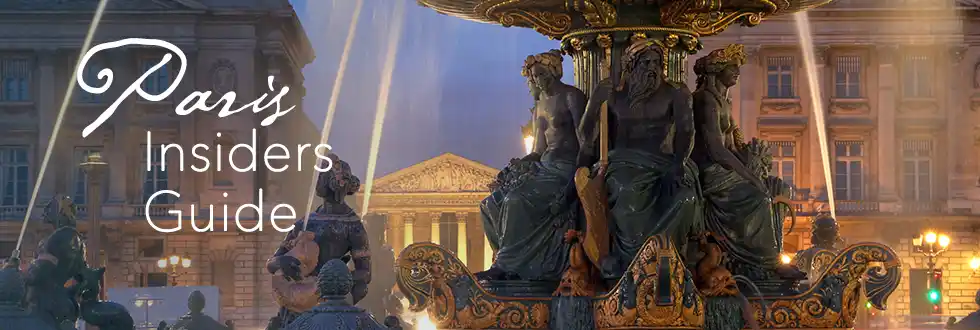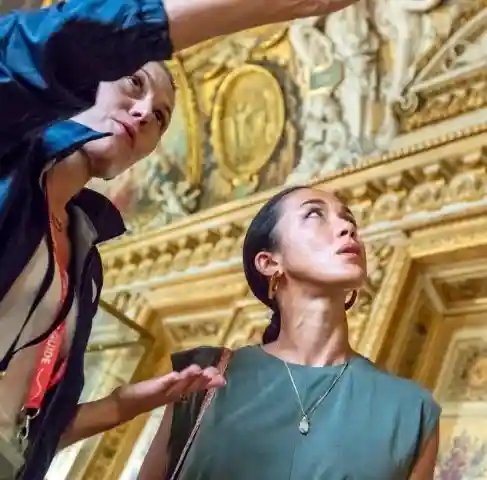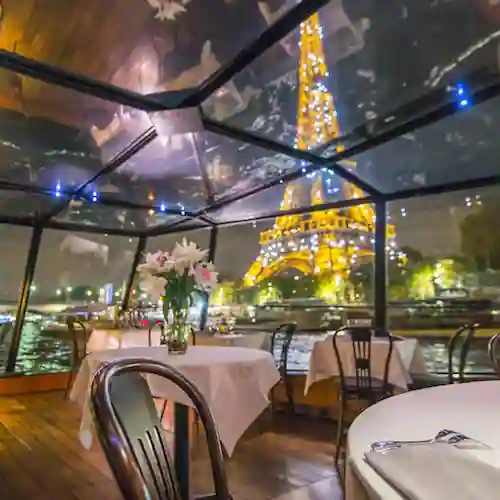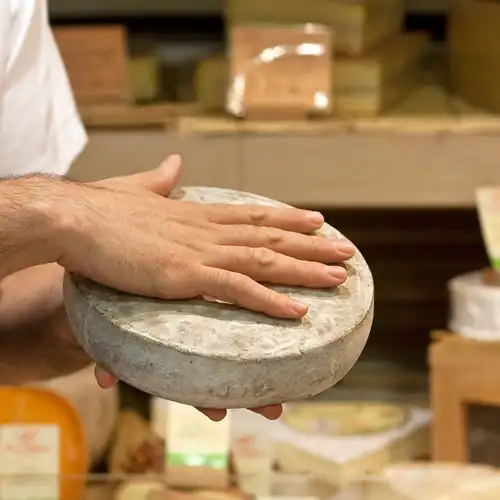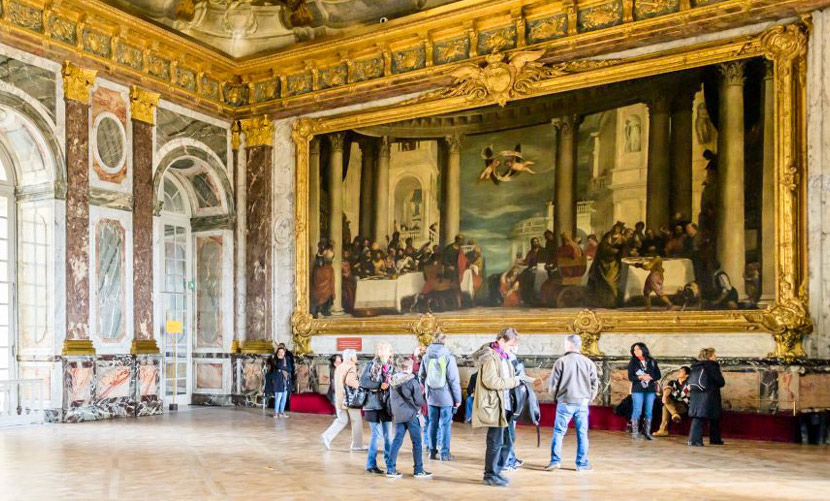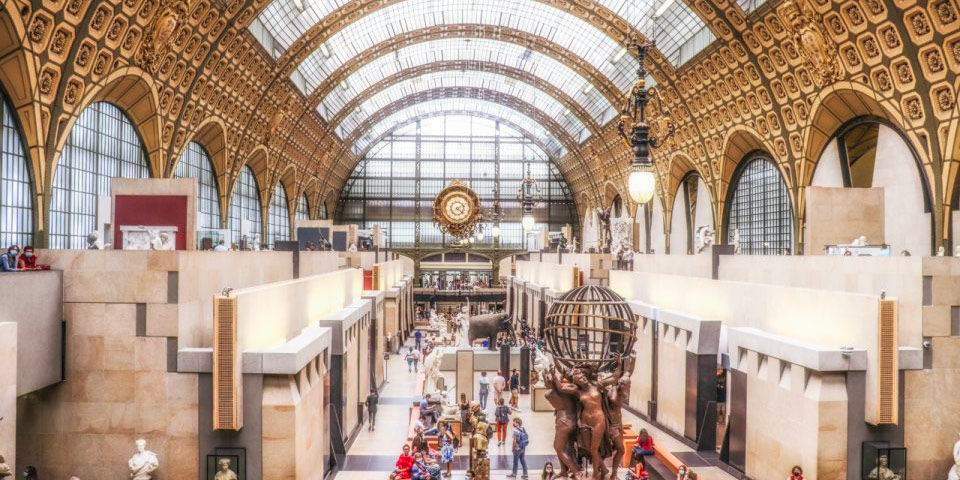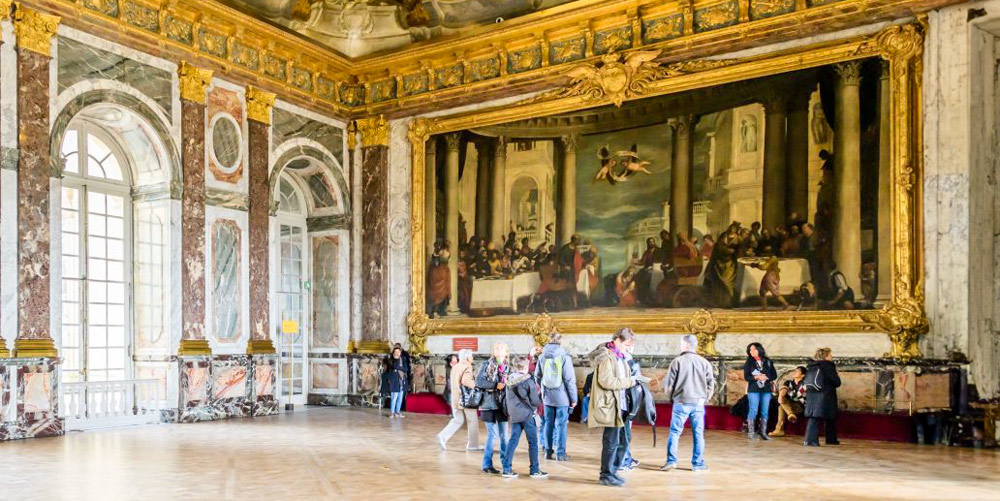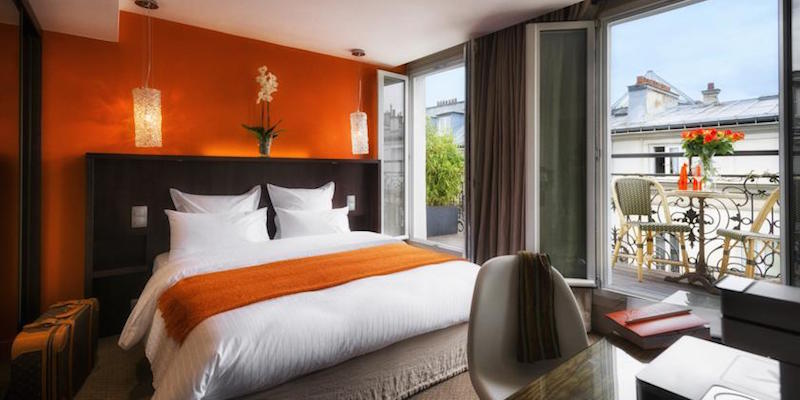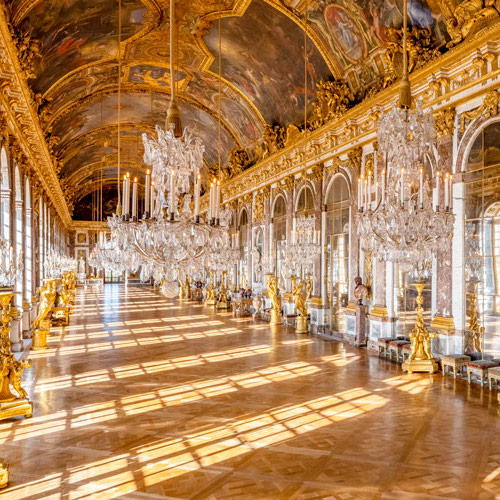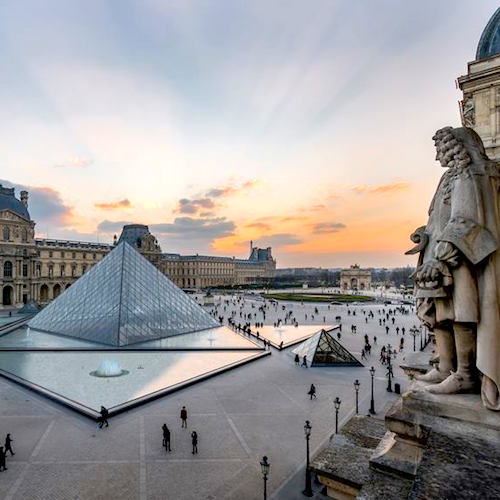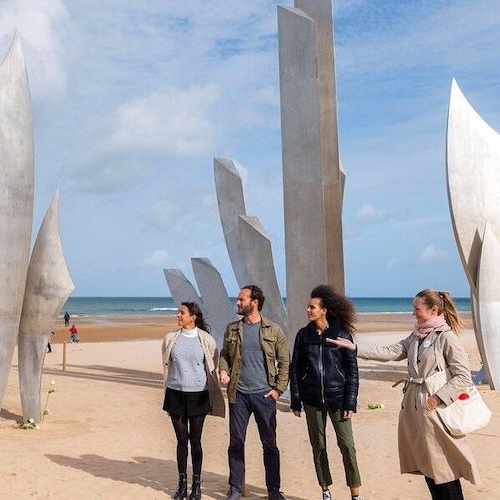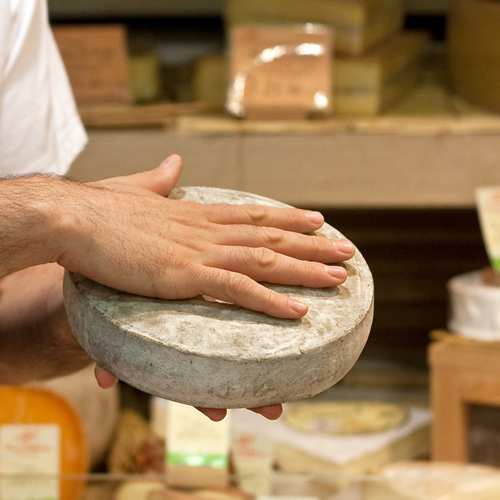Parc de la Villette: A Modern Canvas Of Arts, Science & Culture
A tribute to arts, sciences, and open space, Parc de la Villette is a striking fusion of avant-garde design, wide lawns, and engaging thematic gardens. Built over two decades on the site of a 19th-century abattoir and meat market, it transformed into one of Paris's largest urban parks, second only to the expansive bois. Today, it's a vibrant meeting ground for architecture, nature, and cultural pursuits in northeast Paris.
![]()
Our Top-Rated Paris Experiences
Cultural Hub of the 19th Arrondissement
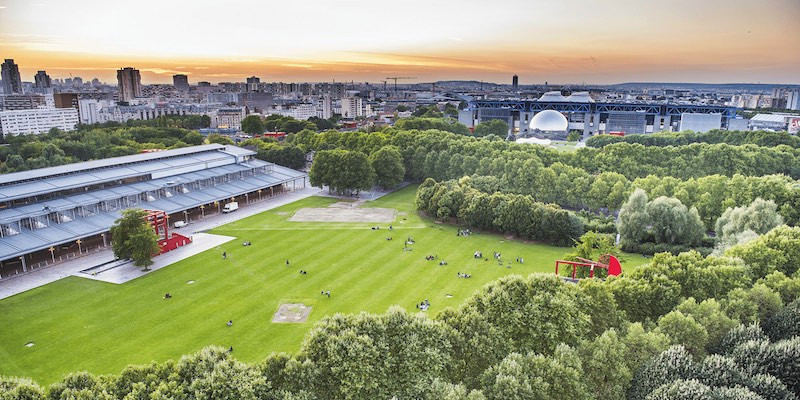 Drone view of Parc de la Villette, photo La Villette
Drone view of Parc de la Villette, photo La Villette
Anchoring the cultural activity of the 19th Arrondissement, Parc de la Villette is a world in itself. The sprawling site hosts Europe's largest science museum, an impressive music museum, and major concert venues, including the Philharmonie de Paris. It's also home to the prestigious Conservatoire de Paris, making this park a cornerstone for culture and education on the city's northeastern edge.
![]()
Discover What's On When You're Here...
• January... |
• February... |
• March... |
• April... |
• May... |
• June... |
• July... |
• August... |
• September... |
• October... |
• November... |
• December... |
Discover What's On When You're Here
• January...
|
• February... |
• March... |
|---|---|---|
• April... |
• May... |
• June... |
• July... |
• August... |
• September... |
• October... |
• November... |
• December... |
History & Design at Parc de la Villette
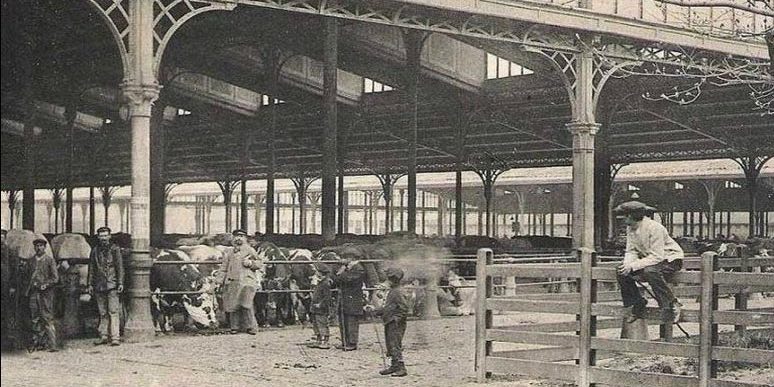 Halle aux Boeufs at La Villette, c. 1870
Halle aux Boeufs at La Villette, c. 1870
In the mid 19th century, during the massive renovation of Paris driven by Emperor Napoleon III and his city administrator, Baron Haussmann, the city was not only rebuilt but expanded as well — bringing into the city limits nearby village and towns. One of those villages, to the northeast of Paris, was La Villette, with a history that went back to at least the Roman era. (In the 12th century, by the way, La Villette was home to a leper's hospital.)
In 1859, under Haussmann, La Villette was incorporated into the newly-created 19th Arrondissement. At the same time it was decided to create a new, central abattoir to replace five large slaughterhouses then located in Paris at Montmartre; at Ménilmontant (another village, incorporated into the new 20th Arrondissement); Roule, on the Right Bank not too far away from the Louvre; Grenelle (in the current 15th); and Villejuif, in the current 13th.
As the city grew over the next one hundred years, the Villette abattoir was moved to locations outside of Paris. With the exception of the Grande Halle de la Villette (formerly called the Halle aux Boeufs and which still exists today) most of the Villette buildings were razed in the mid-1970s. Following an international design competition, the first stage of Parc de la Villette was built between 1984 and 1987.
![]()
|
Skip the lines and join an expert-led tour through the Musée d'Orsay — home to Van Gogh, Degas, and Monet. It’s the ultimate walk through 19th-century art in a grand old train station. |
|
Skip the lines and join an expert-led tour through the Musée d'Orsay — home to Van Gogh, Degas, and Monet. It’s the ultimate walk through 19th-century art in a grand old train station. |
A New Park is Born
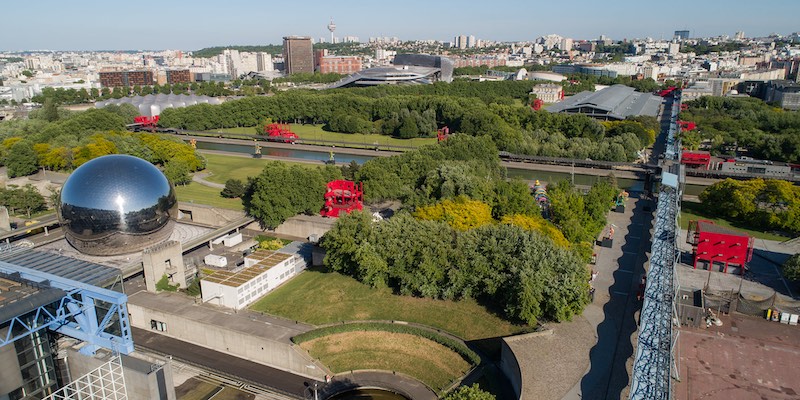 Parc de la Villette, La Grande Halle in upper right center, photo by Pixlr
Parc de la Villette, La Grande Halle in upper right center, photo by Pixlr
The idea was to transform the 135 acres into a modern 20th-century park filled with activity — in sharp contrast to 19th-century parks where rest and leisure reigned supreme. One essential design feature was keeping the north-south perspective open to view. The park's central structure today is the Grande Halle de la Villette, with new buildings scattered around it.
The modern Parc de la Villette is home to museums, concert halls, performance theaters, themed parks, playgrounds, and thirty-five red architectural folies. In case you've forgotten your Architecture 101, folies are buildings meant for decoration rather than practical purposes.
![]()
|
Trade Paris bustle for royal grandeur on a guided Versailles tour. Skip the lines, wander the gardens, and peek inside Marie Antoinette’s private estate. History never looked this good. |
|
Trade Paris bustle for royal grandeur on a guided Versailles tour. Skip the lines, wander the gardens, and peek inside Marie Antoinette’s private estate. History never looked this good. |
Cité des Sciences et de l'Industrie
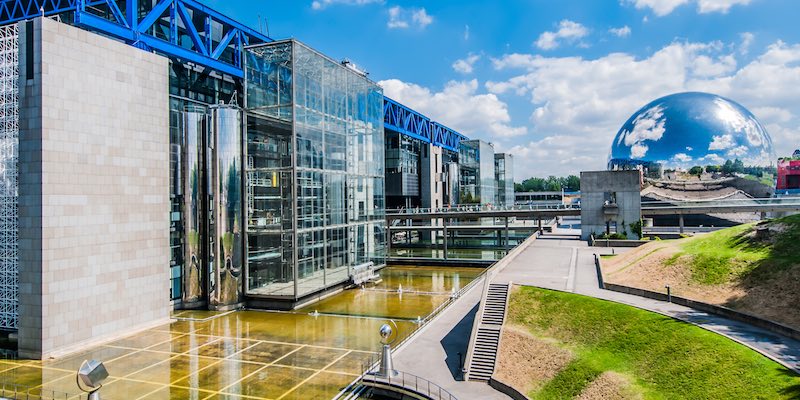 Cité des Sciences et de l'Industrie, with La Géode globe
Cité des Sciences et de l'Industrie, with La Géode globe
It's a long way from an abattoir to the largest science museum in Europe, but that's the story of the Cité des Sciences et de l'Industrie. The cité's planetarium, submarine, and exhibits of all sorts are well worth a visit. There are frequent special science exhibitions and the museum is often filled with Parisian students on school field trips.
The modern exposed blue structural details on both the interior and exterior may remind you of Centre Pompidou. The museum prides itself on its many interactive displays, including with an aquarium, a multimedia library, and the Cité des Enfants, for children up to age twelve. Explora on Level 1 holds the permanent exhibitions while on the top floor are the Planetarium and the temporary exhibitions.
![]()
|
Browse our hand-picked Paris hotel deals with real-time discounts of up to 20%. Stay in the Marais, Saint Germain, the Latin Quarter, the Left Bank near the Eiffel Tower… every arrondissement is on the list. |
|
Browse our hand-picked Paris hotel deals with real-time discounts of up to 20%. Stay in the Marais, Saint Germain, the Latin Quarter, the Left Bank near the Eiffel Tower… every arrondissement is on the list. |
Philharmonie de Paris: The City's Music Marvel
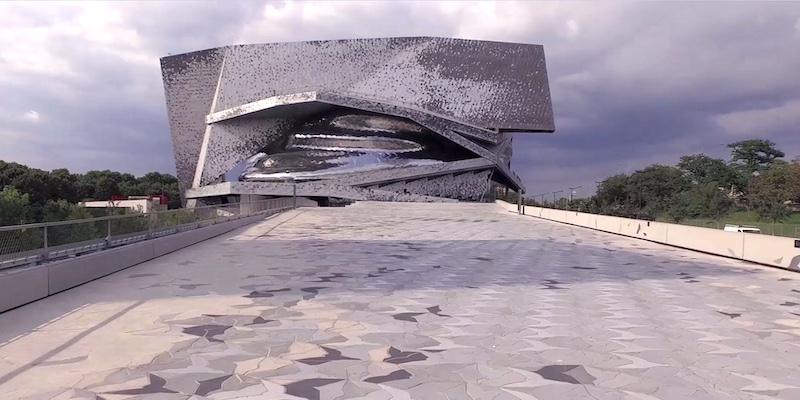 Philharmonie de Paris, exterior
Philharmonie de Paris, exterior
The Philharmonie de Paris is a landmark in contemporary music and architecture, completed in 2015 with a bold, innovative design that commands attention. Inside, the Philharmonie boasts concert halls with exceptional acoustics, inviting listeners to an experience of unparalleled sound clarity. Originally part of the Cité de la Musique complex, the Philharmonie houses over 1,000 historical instruments, with pieces connected to composers like Chopin. This is now Paris' foremost music venue, offering performances and exhibits that celebrate music's evolving legacy.
![]()
|
Escape to the Land of Bubbly on a small-group day tour from Paris. Taste at top Champagne houses, meet boutique producers, enjoy a leisurely lunch, and toast to a perfectly sparkling day. |
|
Escape to the Land of Bubbly on a small-group day tour from Paris. Taste at top Champagne houses, meet boutique producers, enjoy a leisurely lunch, and toast to a perfectly sparkling day. |
La Grande Halle
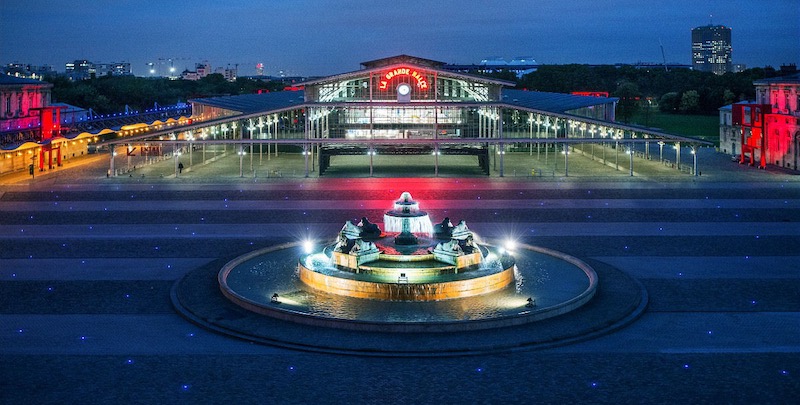 La Grande Hall and Fontaine aux Lions de Nubie
La Grande Hall and Fontaine aux Lions de Nubie
When the La Villette complex opened in the 1860s there were three market halls, but as we mentioned, only La Grande Halle aux Boeufs was preserved for its architectural value. Made of iron and glass as one of Napoleon III's projects, it was completed in 1867 by architect Jules de Merindol. In 1985, La Grande Halle was transformed into a multi-use exposition center. It's one of the few 19th-century structures that survive at Villette.
By the way, the fountain in front of La Grande Halle was originally located on the site that became Place de la République (where the 3rd, 11th, and 20th Arrondissements now come together). When Haussmann built this grande new place, he relocated the Fontaine aux Lions de Nubie (as it is called) out to the new slaughterhouse complex at Villette. Cattle used to drink from the fountain.
Ten Theme Gardens
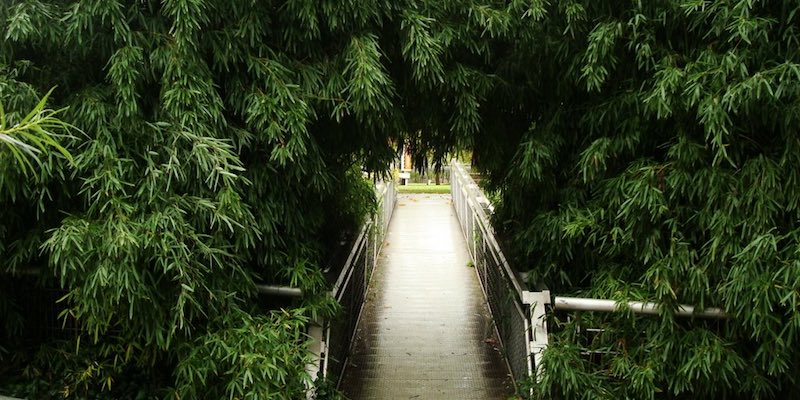 The Bamboo Garden at Villette
The Bamboo Garden at Villette
A walk through Parc de la Villette also reveals ten themed gardens, playgrounds, and buildings housing theaters. Jardin des Miroirs is a quiet, shaded, hidden corner of the surrounding park. From a distance the garden appears to be filled with massive concrete blocks, but once you're within the garden, the mirrored surfaces make the concrete disappear. There are in fact, nearly thirty mirrors set among the pines and maple trees.
Other themed gardens to explore here include the Garden of Dunes, the Garden of Trellises, the Bamboo Garden, the Garden of Movement, the Garden of Balance with metallic kites, and even a Garden of Childhood Fears with a walkway where eerie music is played.
![]()
|
Browse our hand-picked Paris hotel deals with real-time discounts of up to 20%. Stay in the Marais, Saint Germain, the Latin Quarter, the Left Bank near the Eiffel Tower… every arrondissement is on the list. |
|
Browse our hand-picked Paris hotel deals with real-time discounts of up to 20%. Stay in the Marais, Saint Germain, the Latin Quarter, the Left Bank near the Eiffel Tower… every arrondissement is on the list. |
Other Villette Features & Folies
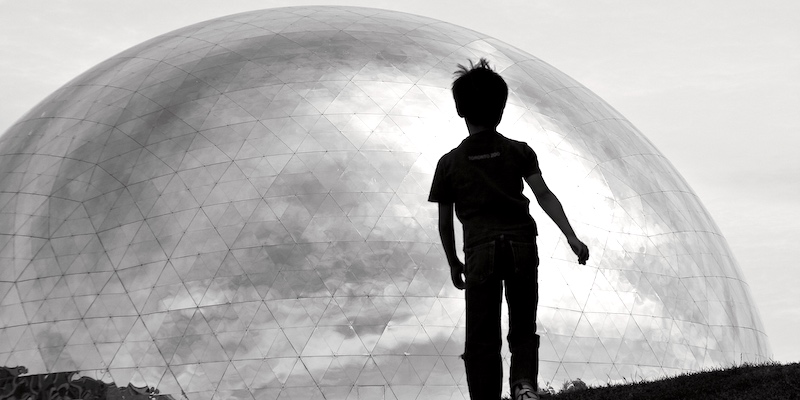 La Géode with Alexandre, photo by Mark Craft
La Géode with Alexandre, photo by Mark Craft
La Géode
La Géode is a geodesic dome with stainless-steel, mirror-like faces, that is located next to the Cité des Sciences. (Photo above.) It houses an IMAX(or OmniMax) theatre. Continuing north through the park, and crossing the Canal de l'Ourcq, you come to the Kiosque a Musique, which is surrounded by an outdoor dance area.
Argonaute Submarine
Launched in 1958, the Argonaute submarine spent 2,000 days at sea and 32,000 hours underwater. The submarine finally was retired in 1982. Seven years later, the Argonaute was transferred through seven locks of the Saint-Denis Canal to her final destination in the Cité des Sciences et de l'Industrie where she can be viewed today.
Zenith Performance Hall
Zenith, a 6,000-person performance hall, was intended to be temporary when it was built in 1983. (Same thing happened with the Eiffel Tower in 1889.) The metal framework and lightweight silver polyester fabric was quickly erected. Since then the theater has become a permanent part of the park and has inspired similar theaters throughout France.
Ourcq Canal
The Ourcq Canal runs through the middle of Parc de la Villette. Here you can catch a boat that connects to Canal St Martin and takes you on a cruise though its locks to reach the Seine. There are two pedestrian bridges than span the canal to the other side of the park. During the summer a mobile floating bridge is installed between these two bridges.
Parc de la Villette Resources
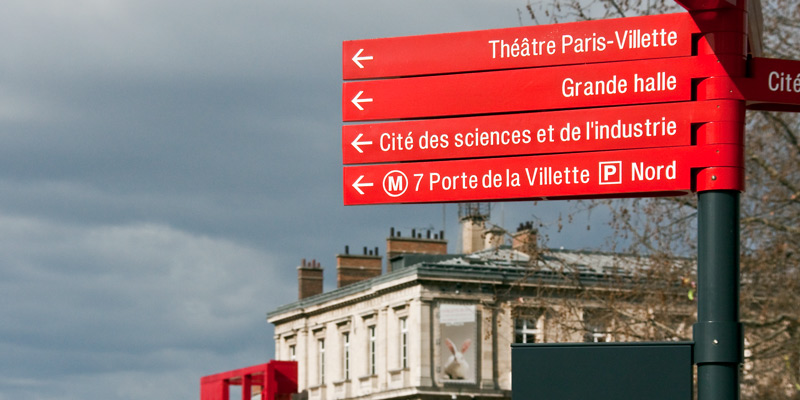 Direction signs at Parc de la Villette, photo by Mark Craft
Direction signs at Parc de la Villette, photo by Mark Craft
- 211 Avenue Jean Jaurès, 75019
- Metro – Porte de Pantin, Porte de la Villette
- Cité des Sciences Website…
- Cité de la Musique Website…
- Philharmonie de Paris Website…
Paris Planning Guides
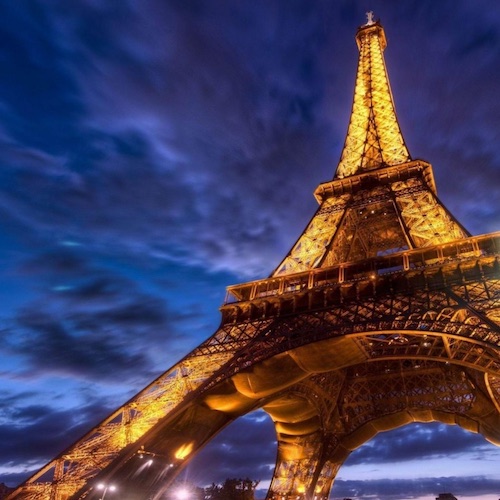 How to Skip the Lines
How to Skip the Lines |
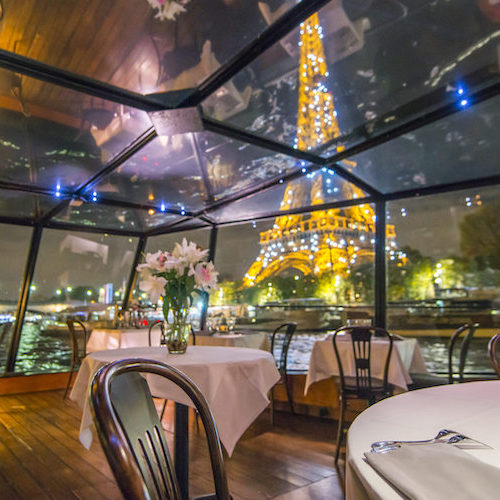 Glorious Dinner Cruises
Glorious Dinner Cruises |
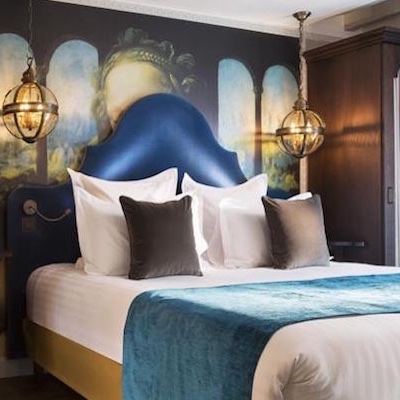 Left Bank Hotels
Left Bank Hotels |
 Glorious Dinner Cruises
Glorious Dinner Cruises |
